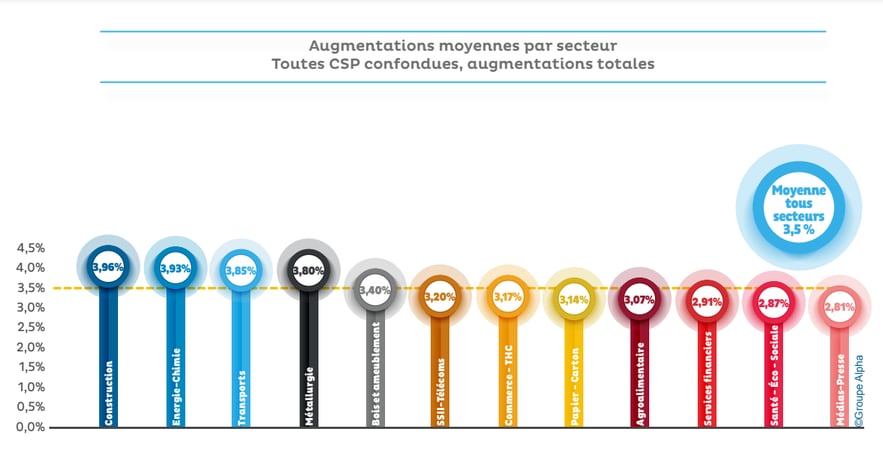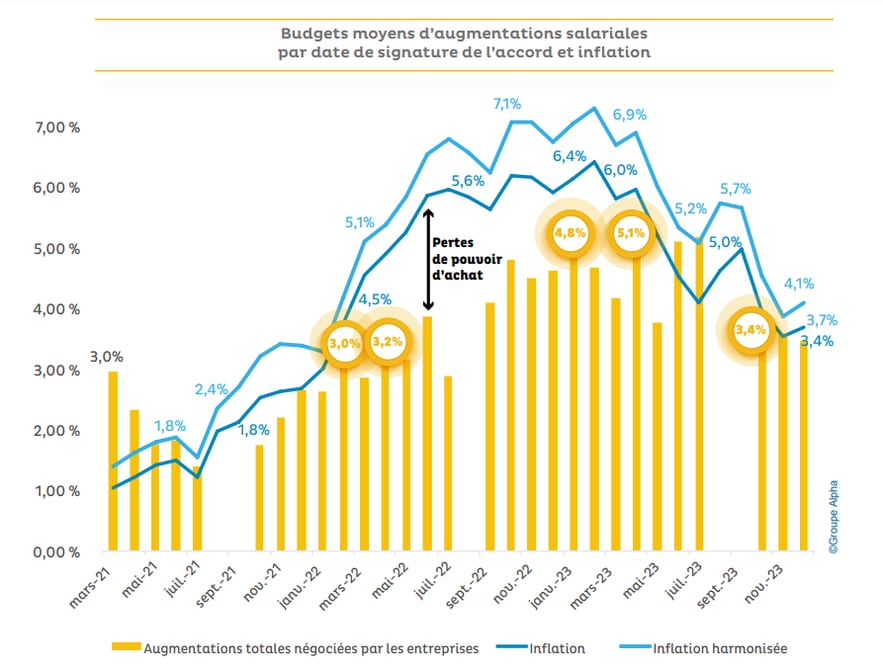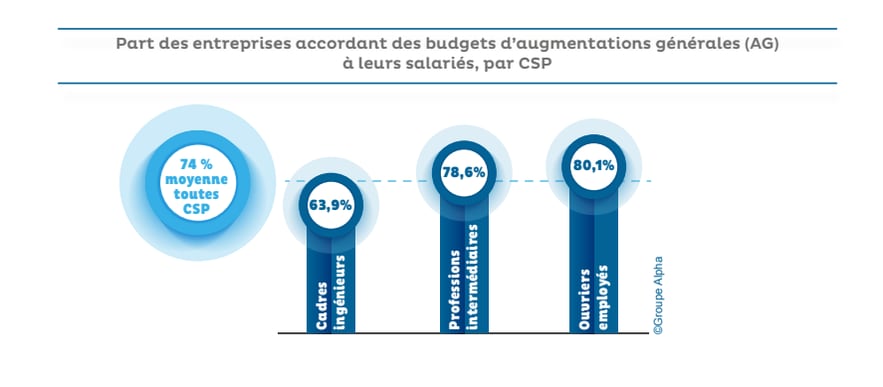In 2024, salary increases negotiated at the start of the year were less generous than the previous year, according to a study conducted by the human resources consulting firm Alpha Group, published Thursday February 1. This year, salary policy was “marked by the decline in increase budgets” and “the decline in the use of general increases”, analyzes the firm based on data from 420 obligatory annual negotiation agreements (NAO) in the private.
This year, 74% of companies, all socio-professional categories combined, resorted to general increases for their employees, but in a lower proportion than last year: 64% among executives (-6 points compared to the year 2023), 79% among intermediate professions (-7 points) and 80% among employees (i.e. -9 points), where the difference is the highest.
On average, 74% of companies have granted general raises to their employees in 2024. Credits: Groupe Alpha
© / Credits: Alpha Group
Companies have also resorted, less frequently, to individual increases: 55% on average in 2024, all socio-professional categories combined. They concern more executives (60% of agreements), and much less workers and employees (51%).
Energy, transportation, and metallurgy see better increases
Non-managers (who are also those with lower salaries) received slightly larger increases on average: 3.6%, compared to 3.4% for managers. It is in construction, energy, chemicals, transport and metallurgy that salaries will increase the most at the start of the year.
Not necessarily a sign of better economic health in these sectors: there is no correlation between company margin rates and salary increases, according to the Alpha Group. “For example, the construction sector is the victim of a very deteriorated economic situation (rising rates, slowdown in transactions) and yet it is the one which will distribute the highest sectoral increase in 2024,” notes the study. In certain industries, it is also a question of attracting candidates in the face of a labor shortage.

It is in construction, energy, chemicals, transport and metallurgy that wages increased the most at the start of the year. Credits: Alpha Group
© / In 2024, French companies granted average increases of 3.6% for non-executives and 3.4% for executives. Credits: Alpha Group
However, there are no major differences between the sectors of activity: “the two sectors at the extremes of the distribution of average budgets, that is to say Construction (3.96%) and the Media sector- Press (2.81%), have a difference of only 1.15 percentage points,” underlines the Alpha Group. It is therefore between socio-professional categories that the differences are most marked, and not between sectors of activity.
Decline in purchasing power
This brake on salary increases leads to a difficulty: that of the drop in the purchasing power of employees, in a period of inflation. For three years, the increase budgets have followed inflation but without exceeding it, which has resulted in “historic cumulative losses of purchasing power”. Low wages are those who are victims of the greatest declines.

For three years, salary increases have followed inflation without exceeding it, which results in a drop in purchasing power. Credits: Alpha Group
© / For three years, salary increases have followed inflation without exceeding it, which results in a drop in purchasing power. Credits: Alpha Group
In 2024, the purchasing power of employees will therefore depend on how inflation will evolve, and its impact on real wages. The Banque de France forecasts inflation at 2.5% in 2024, which would allow employees to gain “1 point of purchasing power”, according to calculations by the Alpha Group. But price variations remain dependent on the still very unstable economic situation, and employees must deal with inflation.
